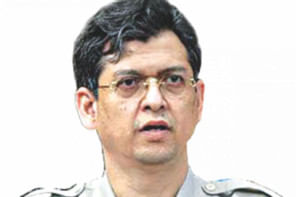SILOS OR PUZZLE?
OVER the last decade, Bangladesh has spent over half-a-billion US dollars on hundreds of projects to tackle climate change. Thousands of people within and outside government have started to climb up the knowledge ladder from the first rung which was to understand the nature of the risk to each locality and each stakeholder group. The country is now well on the way to moving up the second rung to actually figuring out solutions to tackle climate change and starting to find ways that work.
As learning to tackle the problem of climate change is a learning-by-doing process, now is therefore a good time for the country to take stock of what we have learnt so far in order to plan the next phase of our collective and individual actions in the next phase of plans and activities.
My analysis of where we are at the moment, and what we need to do next, is that we have many hundreds of activities, some good and others less good, has three elements:
Firstly, we need to evaluate the effectiveness of what we have done so far before we move to the next phase of actions.
Secondly, we see many, separate and unlinked, activities already done, many of them quite good, but they are all taking place in parallel and in silos which do not connect with each other.
Thirdly, we have an opportunity now to move from a set of parallel silos to making the different pieces of work to actually connect to others and make them fit with their closest neighbours so that they become part of a bigger puzzle.
It is essential that the pieces become bigger than the sum of the parts. This will require several things to happen; starting with sharing information on where the climate funds spent so far went. Then we need to have a credible independent evaluation of how effective the activities were. Finally, we need to be open to admitting mistakes, so that we do not repeat them.
We cannot hope to achieve everything overnight or even in the next few year, but nevertheless, if we have the vision then we can work together to make it a reality.
The writer is Director of the International Centre for Climate Change and Development at the Independent University, Bangladesh.
E-mail: [email protected]

 For all latest news, follow The Daily Star's Google News channel.
For all latest news, follow The Daily Star's Google News channel. 



Comments